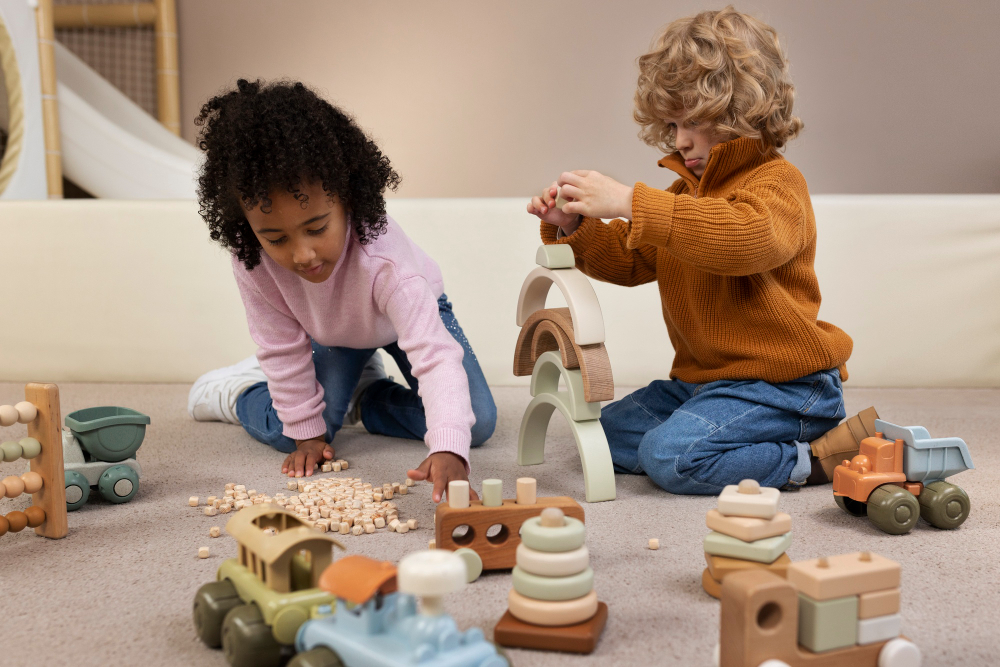Table of Contents
What is Child-initiated play?
Child-initiated play is a play where children direct the activities. Like free play in early years, it allows children to choose what they play with and how and when they do so. It is often used in nurseries and early years classes, where children can help themselves to communal toys.
Adults can join in with child-initiated play but are encouraged to follow the children’s lead. The child should direct their play, choosing which activities and toys interest them.
The child-initiated play has a vital role in children’s learning and development. Children explore and learn from their own thoughts and ideas. It allows children to be creative with what they do and drives their exploration. Play is an innate behaviour in that most children do not have to be made to or given incentives to do it. Instead, they have a natural urge to play, and the enjoyment derived from it is its reward.
Benefits of Child-Initiated Play
- Emotional development — with child-initiated play, children can make their own choices. By being given this space, children learn that their ideas are important, validating their choices. Since child-led play can include activities like role play, they can also explore specific ideas and emotions that are relevant to them at the time. It’s great for letting them work through emotions in a safe space in their own way.
- Independence — it gives children a level of independence from an early age that is not provided by adult-led play. They can learn to make their own choices and explore what they can do with this freedom. Not only do they learn that their opinion matters, but they practice making choices with sensible boundaries in place.
- Creativity — Children can show their creativity when left to their own devices. They can express themselves and their ideas in the way they play freely and with exciting things.
- Concentration — Children can concentrate for extended periods when following their interests. They can participate in educationally beneficial activities like making models or using building blocks. But, since child-initiated play offers them the time to explore these ideas in full, they can keep their focus on one task and explore it to its fullest. This is a skill that they’ll carry through the stages of their educational journey and into adult life.
- Social skills — Child-initiated play helps children learn to share and cooperate without adult input or intervention. They must work together to drive their activities, offering their ideas and opinions. Plus, they can build strong friendship bonds on their common interests.


